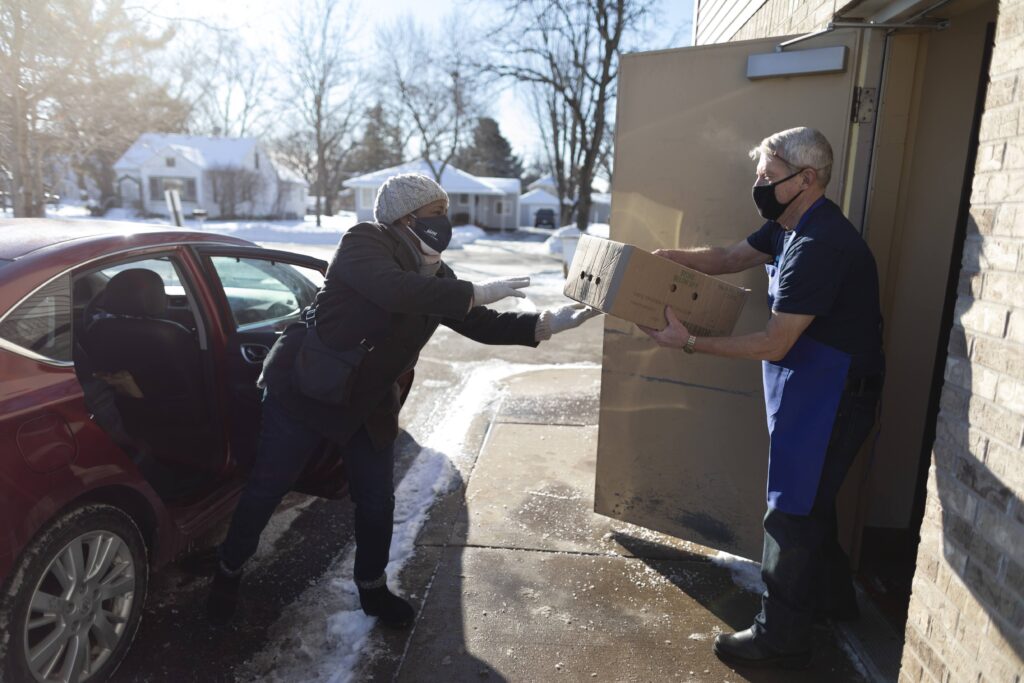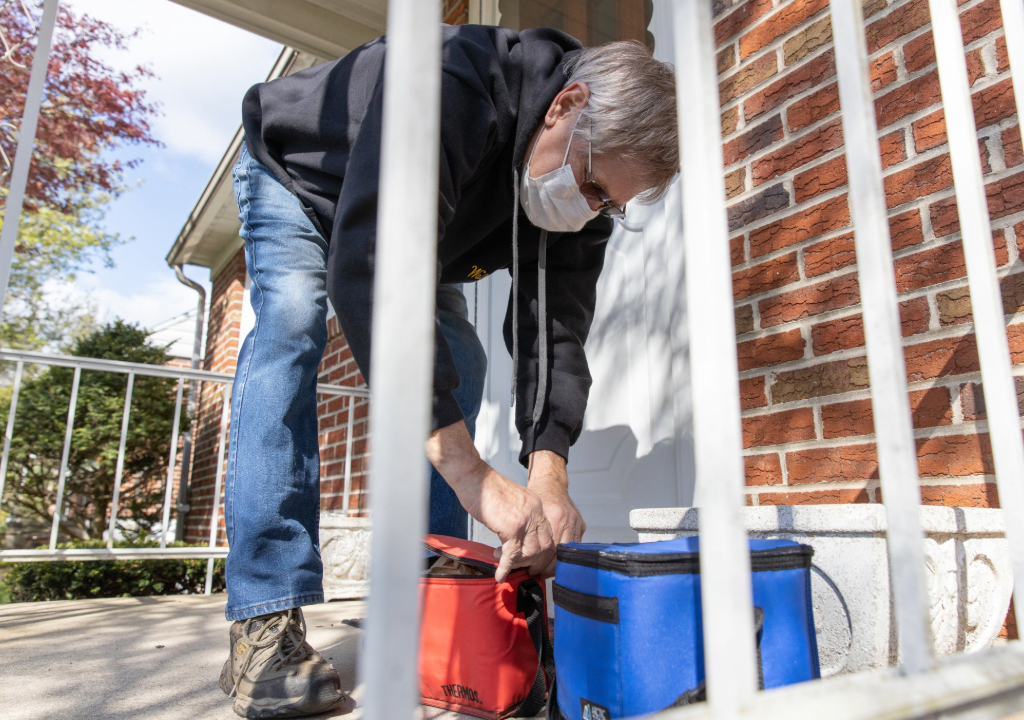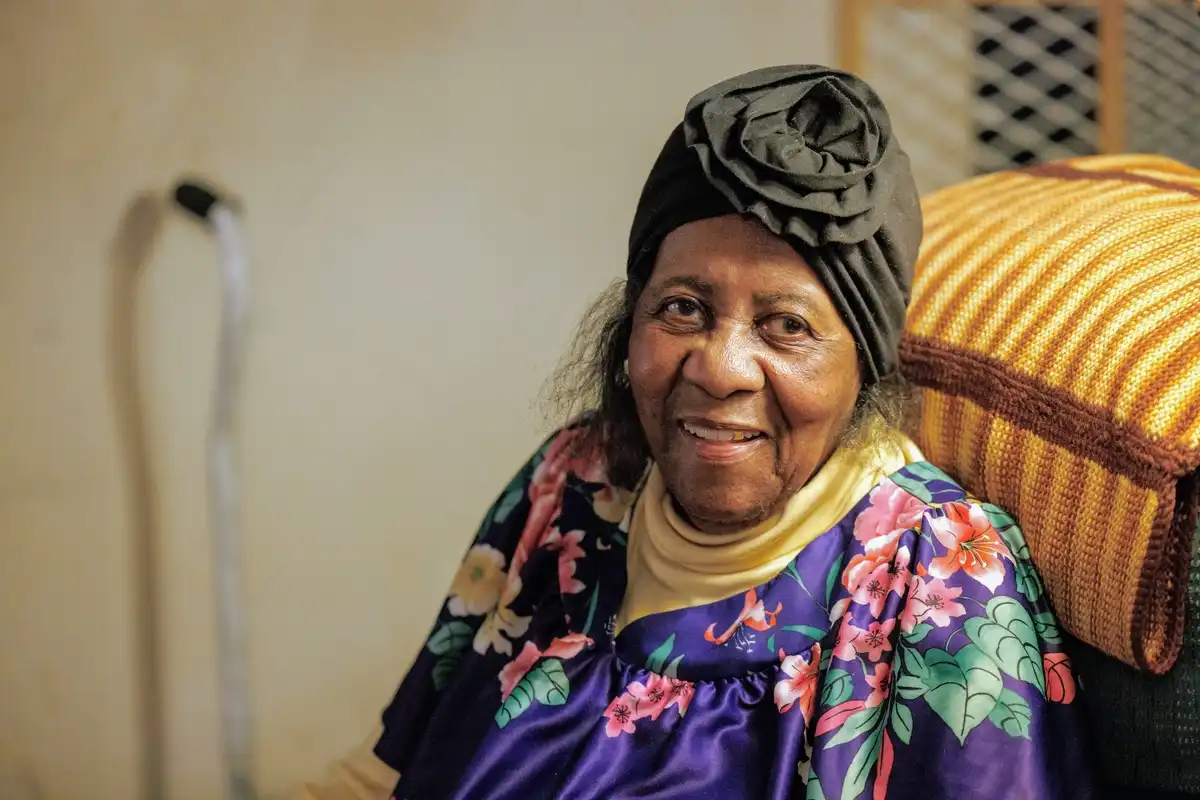Links & Downloads
The COVID-19 pandemic had a profound effect on older adults in the United States and increased the need for services and resources for this population. Adults age 60 and older are at greater risk than the rest of the population of serious illness or death from COVID-19, and these risks increase with age. Local Meals on Wheels providers had to shift their services and strategies to meet an increased demand for home-delivered meals during the pandemic.

In October 2020, Meals on Wheels America launched a study to explore how COVID-19 had affected older adults, older adults’ perceptions of and experiences with Meals on Wheels, how older adults anticipated their behaviors would change as the pandemic evolves and recommendations for improving Meals on Wheels services. To assess these topics, researchers conducted two data collection activities with adults age 60 and older: a nationally representative survey with 1,535 respondents and 24 qualitative in-depth interviews.
Key Findings
The findings uncovered opportunities for local Meals on Wheels providers and other community-based organizations that serve older adults to enhance services and address existing unmet need through the pandemic and beyond.
Impact of COVID-19
- The COVID-19 pandemic affected many aspects of older adults’ lives and well-being, including their physical and mental health, social connectedness, volunteer opportunities, employment, use of technology and use of services. In particular, respondents reported that the pandemic negatively affected their social lives and dramatically increased their feelings of loneliness.
- 52% of survey respondents reported being worse off at the time of the survey than they were before the pandemic began.
- The majority of older adults surveyed reported at least one unmet need, but types of needs varied overall and by respondent characteristics. Survey respondents who had a lower income, were Black, were age 75 and older or lived alone were more likely to report having unmet needs during the pandemic.
Use of Services and Assistance
- Many survey and interview respondents reported receiving help from their informal networks, which was the primary source of assistance for older adults during the pandemic.
- More than half of survey respondents said that they had applied for or received help from other, more formal sources, such as government health insurance or a health coverage plan.
- 16% of survey respondents said they had ever used a Meals on Wheels service. Those respondents who were Black or Hispanic, had a lower income, lived in a rural community or had a disability were more likely to have ever used Meals on Wheels services.

Awareness and Perceptions of Meals on Wheels
- Findings from the survey and interviews suggested broad general awareness and positive perceptions of Meals on Wheels. However, the level of familiarity with Meals on Wheels varied by specific groups of older adults, and awareness of non-meal services and eligibility criteria for receiving services among older adults was limited.
- Although a majority of all older adults were very or somewhat familiar with Meals on Wheels, Black and Hispanic older adults were less likely than White older adults to be very or somewhat familiar with it.
- Older adults’ recommendations for improving Meals on Wheels services focused on improvements to meal offerings (e.g., larger portions, greater choice), additional services that Meals on Wheels could provide (e.g., more socialization programs, help around the house, transportation services) and improving outreach to increase awareness of services.
Anticipated Changes in Need
- Most interview respondents indicated that COVID-19 would not affect their use of Meals on Wheels services; instead, the most commonly cited factors that would precipitate a need for Meals on Wheels services were the potential death of a spouse, deteriorating health and a decrease in self-sufficiency (e.g., inability to drive to the grocery store or prepare a meal).
Resuming Pre-Pandemic Activities
- The survey and interview data suggested that older adults had put many of their regular activities on hold during the pandemic and expected they would not resume them for quite some time. More than half of interview respondents anticipated that there would be a “new normal” after the pandemic.
- Survey respondents with disabilities were less likely to report resuming their normal pre-pandemic activities.

This research offers valuable insights into the needs of, and perceptions held by, older adults who were recipients of Meals on Wheels services both before and during the COVID-19 pandemic, as well as others who were not recipients of any type of Meals on Wheels services. Opportunities for growth identified through this research include:
- Expanding service offerings or referrals/connections to meet key needs
- Conducting ongoing assessments to identify evolving needs and preferences
- Improving partnerships with other older-adult-serving organizations
- Enhancing assistance for informal support networks
- Planning to continue socially distanced offerings
- Enhancing supports and resources for local Meals on Wheels programs
- Improving awareness and perceptions of Meals on Wheels services
In reproducing any excerpts of this report, please provide a credit that recognizes Meals on Wheels America, such as: Meals on Wheels America. (2021). COVID-19 and Older Adults: Research Findings and Implications for Meals on Wheels. https://www.mealsonwheelsamerica.org/research/covid-19-and-older-adults-research-findings-and-implications-for-meals-on-wheels/
External Publications
How Has COVID-19 Impacted Older Adults and Their Needs for Services?
Bayne, A., Kennedy, M., Alvarez, E., Wright, B., Theilheimer, L., & Benz, J., Innovation in Aging, 2021

